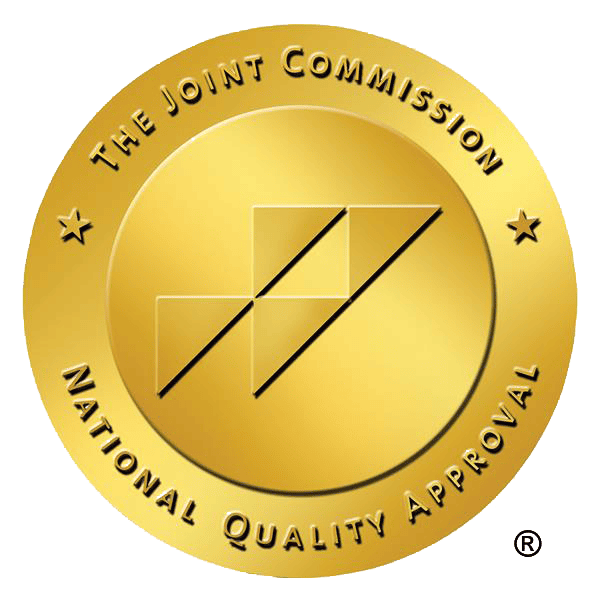Austin Addiction Treatment Services
Our Austin addiction treatment program aims to encourage and accomplish long-term healing and wellness through psychodynamic-informative integrative care. Subsequently, we continually strive to ensure whole-person treatment while incorporating a healing environment, a diversely trained staff, and a combination of therapies to form a unique, comprehensive clinical approach. We offer programs to promote a mind-body connection while delving into essential social, cultural, and spiritual lifestyle factors.
Individual and Group Therapy
The Austin addiction treatment center concentrates on breaking down and understanding the physical and cognitive issues involved in the disease of addiction. Individual and group therapies bring different values to addiction treatment. Evidence-based therapies have a proven track record, and cognitive behavioral therapy is a fundamental principle of behavior change. Group therapy supports the human connection with peers to the challenge of taking down walls to share and trust essential truths of addiction and recovery.
Individual Therapy
Meanwhile, our Austin addiction treatment programs include cognitive behavioral therapy (CBT) to teach new coping mechanisms and positive thought processes to cope with urges and triggers. Dialectical behavioral therapy (DBT) is an evidence-based therapy. DBT is beneficial for developing self-regulation techniques and stress management strategies. The therapist determines which modality is best for the patient's needs.
Individual therapy is attended at least a few times weekly with several group meetings for ultimate results.
Group Therapy
Ultimately, group therapy promotes tools to positively relate to others and see a broader vision of their new lifestyle. Patients can learn from one another based on shared experiences, symptoms, triggers, and diagnoses. This can help to foster a feeling of community in recovery.
Group therapy can even follow a specific modality, like CBT or DBT. In addition, clients can practice or role-play social skills with one another and get feedback about their progress. Most patients have a mix of group and individual therapy sessions during addiction treatment in Austin.
Wellness Programs in Austin, TX
Addiction and mental illness directly affect an individual’s physical well-being. Functional medicine examines present conditions and how to restore well-being by addressing the cause of disease. First, it is crucial to establish health goals and a plan to achieve them successfully. Secondly, identifying optimal well-being factors, such as nutrition, exercise, medication management, and sleep habits, are fully explained. Finally, once a firm understanding of a healthy and positive lifestyle is understood, the collaboration can begin through an Austin addiction treatment program for wellness.
Holistic therapies reduce the need for medications, learn how to cope in the present moment, and boost mental and physical health. Meditation can also be spiritually beneficial in recovery. Austin addiction treatment programs incorporate the following practices to meet the goals of restoring well-being.
- Yoga: promotes positive brain function and builds a connection with the body
- Mindfulness and meditation: promotes increased focus and living in the moment while decreasing stress and increasing relaxation
- Recreational therapies: biological activities to induce and promote physical and emotional well-being
Integrative Lifestyle for Wellness
Exercise, sleep, and nutrition are vital for physical and mental well-being. Austin addiction treatment programs combine these critical factors to initiate the tools needed for recovery and to prevent relapse. Educational programs introduce the importance of sound nutrition and regular sleep cycles. Ultimately, through our wellness considerations in treatment, lifestyle management tools become new positive habits to replace the negative, unhealthy experience of the past.
Adopting an exercise program and knowing how this essential factor affects brain function increases self-motivating behavior. Exercise increases dopamine production in the brain, which increases feelings of happiness. Feeling strong in the body increases self-esteem and confidence and creates a stronger sense of self. A few examples of exercise options offered with Austin’s addiction treatment include:
- Cardio
- Weight-lifting
- Bicycling
- Exercise classes
AUSTIN ADDICTION TREATMENT: ALUMNI & AFTERCARE
Long-term success for our clients is a primary goal for our center. Patients need to feel secure with a new sober lifestyle and still feel a connection with the treatment team. Aftercare is a top priority, along with relapse prevention. Austin addiction treatment provides many services for additional support for the clients, friends, and family. Therefore, we offer special alumni and aftercare programs.
Alumni Program
Programs include transitional support, which allows clients to stay in touch with their trusted team members and peers. The center's main objective is to promote a sober daily lifestyle. The intensive outpatient program, support groups, and alumni programs are available for continued support.
Aftercare
Aftercare conversations continue throughout addiction treatment. Patients and their families are welcome to receive continued support to encourage long-term sobriety and personal growth.
Family Therapy During Addiction Treatment
Friends and family of an individual struggling with addiction recovery need help and therapy. However, the family and friends must receive family therapy to become a robust, healthy, positive support system. Family therapy points to dysfunctional behaviors that could enable the loved one with an addiction to re-establish negative behaviors. Learning to form and enforce boundaries can positively affect their loved ones; therefore, weekly family therapy sessions are part of the treatment plan.
Family therapy incorporates cultural factors that may affect those with a substance use disorder. Family therapy helps recognize addiction’s generational components and how they affect the healing process. Feeling helpless is difficult and emotionally stressful for everyone involved. Austin addiction treatment helps everyone involved support each other.
Begin Addiction Treatment in Austin, TX
Addiction treatment centers can begin to all look the same, and the process can become frustrating. The Prairie, in Austin, realizes the importance of the mind-body connection and frames their programs to integrate strategies for total well-being.
Building a solid foundation for a sober lifestyle after treatment is a shared goal with our clients. Contact our admissions office to discuss our processes for treating your loved one and working with your family.

